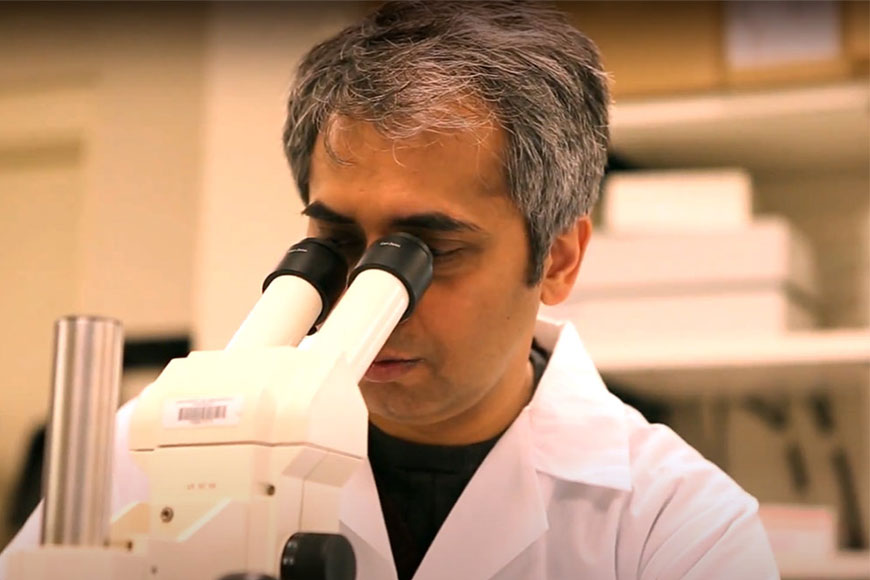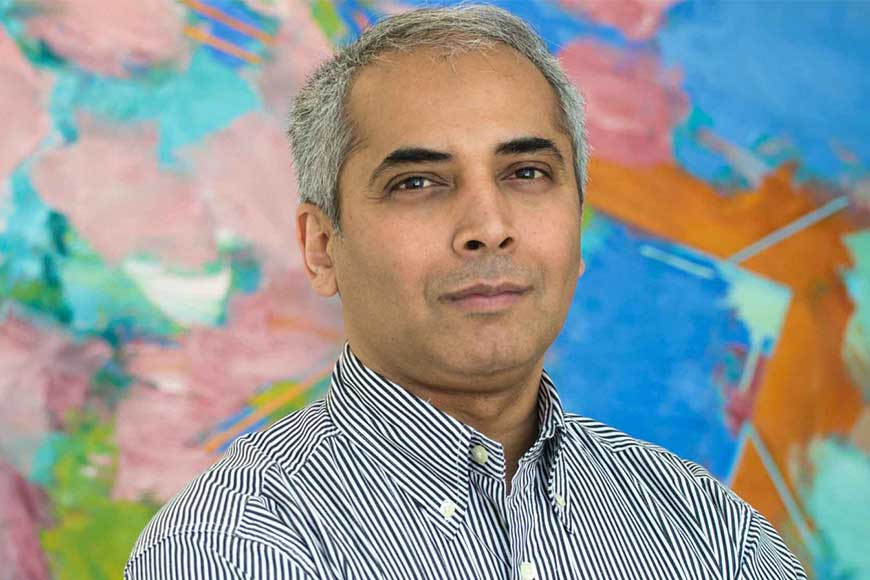Bengali scientist Anindya Bagchi makes a breakthrough in treating deadly pancreatic cancer

Scientists at Sanford Burnham Prebys Medical Discovery Institute have uncovered a novel drug target, a protein called PPP1R1B, that stops the deadly spread or metastatic growth of pancreatic cancer. Published recently in Gastroenterology, the findings are a first step towards a potential treatment for one of the deadliest cancers known today. And the best part of the whole study is that a Bengali geneticist Dr Anindya Bagchi is associated with this path-breaking discovery.
Bagchi is a graduate from Calcutta University in Biochemistry and he did his PhD in genetics from JNU. After completing his post-doc on Cancer Genetics from USA, he is now a member of this international team of scientists headed for a breakthrough in cancer research. In his own words: ‘Our study uncovers a protein, called PPP1R1B, that is completely new to pancreatic cancer researchers and that drives tumor metastasis, the major reason the cancer is so lethal.’ Bagchi is now Associate Professor in the Tumor Initiation and Maintenance Program at Sanford Burnham Prebys and senior author of the study. He adds: ‘With this proof-of-concept data, we can start drug screens that identify an inhibitor of PPP1R1B, which, if successful, may help more people survive pancreatic cancer.’
 Dr Anindya Bagchi
Dr Anindya Bagchi
Pancreatic cancer is one of the deadliest cancers in the world today. Less than 10% people with this type of cancer remain alive five years later. The tumor is difficult to detect because symptoms often don’t appear until the disease has already metastasized. However, if the tumor is contained in the pancreas, the five-year survival rate increases 40%, according to the American Cancer Society. For unknown reasons, pancreatic cancer is on the rise and predicted to become the second-leading cause of cancer-related deaths in the U.S. by 2030.
In the study, the scientists set out to understand how pancreatic cancer responds to oxygen deprivation (hypoxia). Cancer researchers have long wondered how pancreatic cancers are able to thrive in such a harsh environment--and speculated that increased production of hypoxia inducible factor 1 alpha (HIF1A), a gene triggered by hypoxia, can stimulate tumor growth. Drugs that inhibit HIF1A are being explored for many hypoxic cancers, but until now the protein's role in pancreatic cancer was unclear--presenting a hurdle to clinical trials evaluating these potentially promising drugs.
As a first step, Bagchi and his team created mice with pancreatic tumors that do not produce HIF1A. They expected that removing this protein would be beneficial and allow the mice to become cancer free. However, to their surprise, these mice had more aggressive tumors--with more invasion into nearby organs, greater metastasis and shorter survival times.
‘Our original hypothesis was that if we remove HIF1A, a supposed driver of tumor survival, growth should be delayed or we should be curing the cancer,’ says Bagchi. ‘Instead, we got the exact opposite results. When we saw this, we knew that we may have hit something really interesting, and needed to nail down exactly why we are seeing this effect.’
Digging deeper, the scientists discovered that these mice had increased levels of a protein called PPP1R1B. When they removed the gene that codes for this protein, the mice had fewer metastases--suggesting that a drug that inhibits the protein would stop pancreatic cancer from spreading.
(Source: Science Codex, Sanford Burnham Prebys Medical Discovery Institute)










